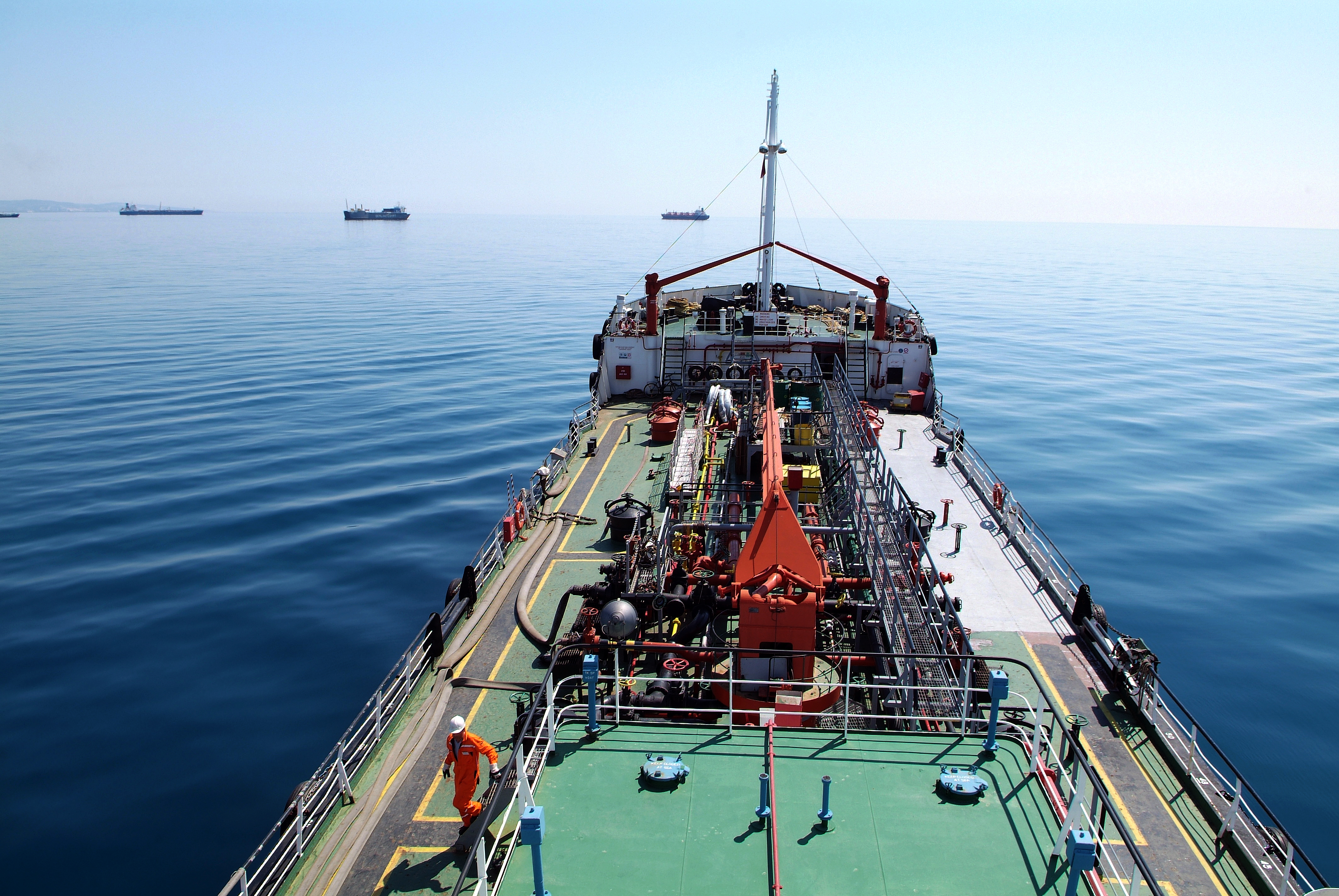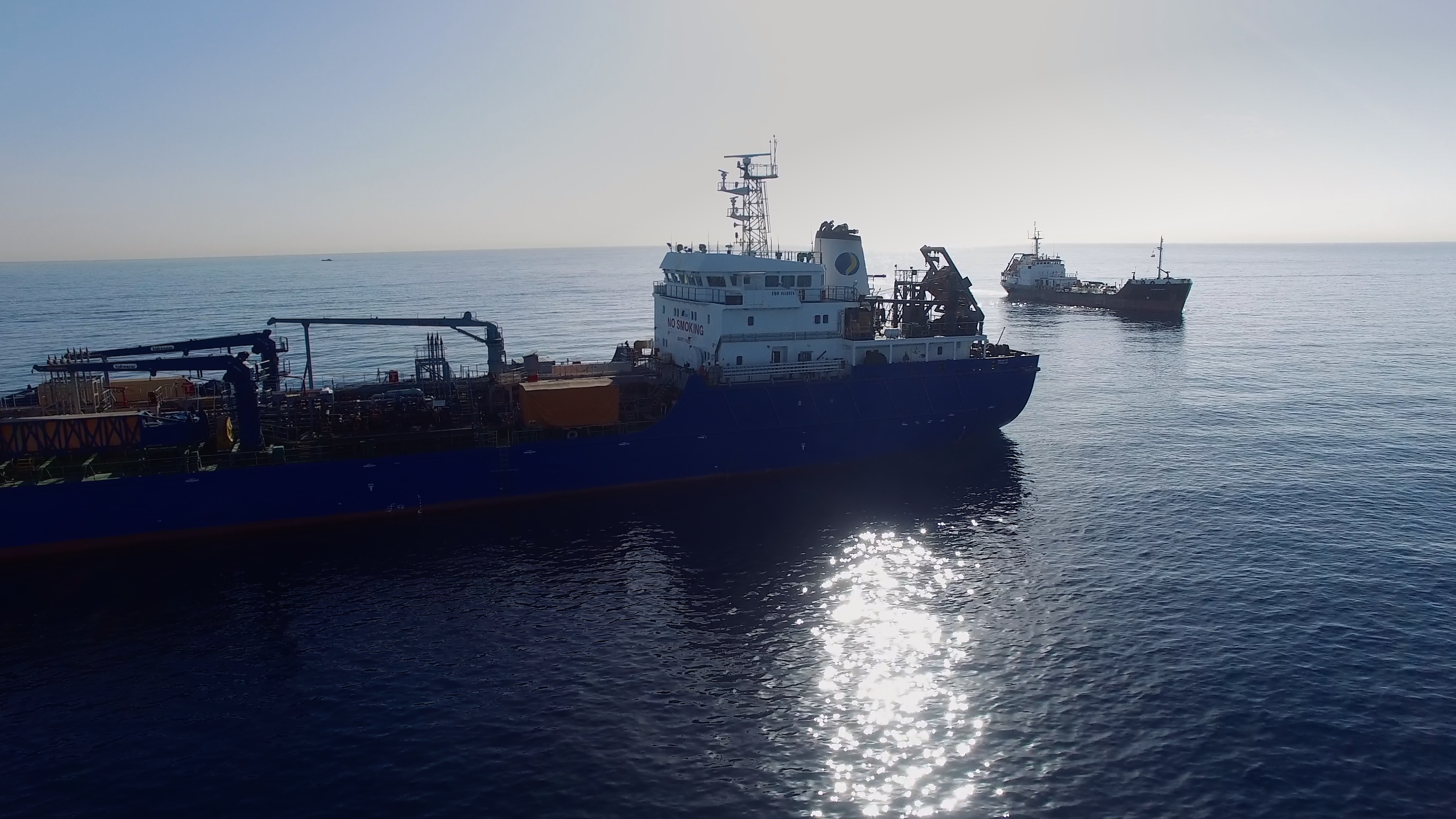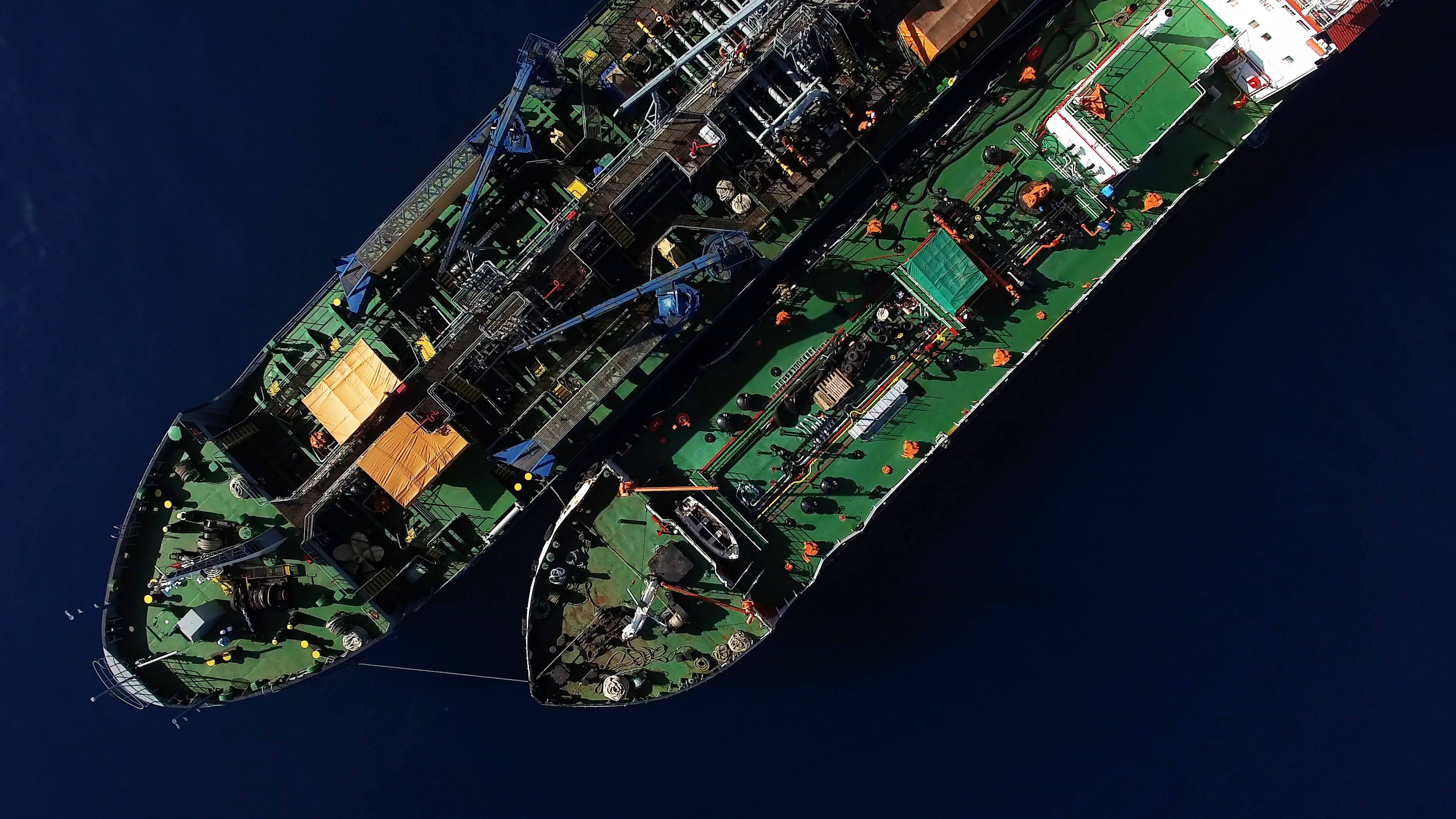Climate targets, biofuels and stricter EU rules are driving efficiency, governance and crew welfare across the region
Demetris Lemesianos, Health, Safety, Quality and Environment and Sustainability Manager at Limassol-based Island Oil Holdings, spoke to Cyprus 4.0 about how shipping is moving towards decarbonisation.
In a wide-ranging discussion, he shared his views on the International Maritime Organisation’s (IMO) climate targets, biofuels, the EU Emissions Trading System, efficiency measures, ESG reporting, crew welfare, governance and the environmental sensitivities of the Eastern Mediterranean.
Shipping contributes nearly 3 per cent of global CO2 emissions. How achievable are the IMO’s 2030 and 2050 targets, and where does the Eastern Mediterranean cluster stand?
The 2030 targets are challenging but achievable. Efficiency measures such as digital optimisation, hull improvements and energy-saving devices are already deployable, while transitional fuels such as biofuels are gaining traction.
The main challenge for 2050 is scaling infrastructure for true zero-carbon fuels, which depends on cost, policy clarity, and global coordination.
In the Eastern Mediterranean, progress is mixed. The region’s dense traffic and strategic ports, such as Piraeus and Limassol, create an opportunity for outsized impact, and initiatives supported by EU funding are already underway.
However, challenges remain, including an ageing fleet, fragmented regulations and limited alternative fuel infrastructure.
By 2030, demonstrating tangible intensity reductions and partial fuel switching will align the industry with IMO goals and enhance competitiveness.

Island Oil Holdings is certified to trade biofuels. Can biofuels provide a credible bridge until alternatives such as ammonia or hydrogen become commercially viable?
Biofuels can play a credible bridging role. Their main advantage is that they are drop-in fuels, meaning they can be used in today’s fleet and infrastructure with minimal modification, delivering immediate greenhouse gas (GHG) reductions of up to 60–90 per cent depending on feedstock.
This makes them particularly useful for near-term compliance with IMO and EU regulations.
Even so, they are not the long-term solution: sustainable feedstock availability is limited, costs remain high and large-scale deployment cannot fully decarbonise shipping.
For that reason, biofuels should be seen as a transitional step that buys time while truly zero-carbon fuels scale up.
For Island Oil Holdings, being certified to trade biofuels is strategically important. It allows us to offer customers credible low-carbon options today while also building expertise in certification and sustainability systems that will be vital for the fuels of the future.
The EU Emissions Trading System now covers shipping. What impact has this had on operators’ costs and behaviour, and how are bunker suppliers adjusting?
The inclusion of shipping in the EU Emissions Trading System (ETS) from January 2024 has had a very real impact on operators. Shipping companies must now surrender allowances for 40 per cent of their emissions this year, rising to 100 per cent by 2027.
Given current carbon prices, this adds a significant cost, often tens of thousands of euros per voyage for larger vessels.
As a result, we are seeing two main behavioural shifts.
First, there is a greater focus on efficiency: operators are adopting improved voyage planning and energy-saving technologies to cut fuel consumption and exposure to carbon costs.
Second, charter party negotiations have become more complex, as owners and charterers seek to clarify who is responsible for EU ETS compliance and costs.
For bunker suppliers, the adjustment has two dimensions. Commercially, we need to support clients in understanding the ETS cost impact and provide transparent emissions data linked to fuel deliveries. Strategically, it accelerates the demand for lower-carbon options such as biofuels.
Suppliers, such as Island Oil, that can certify fuel sustainability, manage emissions reporting, and offer alternative products will be better positioned to retain and grow market share.

Beyond fuel choice, which measures are proving most effective in cutting emissions intensity, vessel efficiency, digital tools or operational changes?
Beyond fuel choice, the most effective measures for cutting emissions intensity are those that combine technical upgrades, digital optimisation and operational discipline.
On the technical side, relatively proven solutions, such as advanced hull coatings, propeller upgrades, and energy-saving devices, can deliver 5–10 per cent efficiency gains each, and together they make a meaningful impact.
Digital tools are also changing the game. Voyage optimisation, weather routing and real-time engine monitoring allow operators to fine-tune performance and avoid unnecessary fuel burn.
These systems not only reduce emissions but also provide the data needed for regulatory reporting under CII, EU ETS, and future IMO requirements.
Operational measures remain essential. Practices like slow steaming, better port call coordination and just-in-time arrival can significantly reduce idle time and fuel waste.
Notably, these can often be implemented immediately and at relatively low cost, making them highly attractive in the current regulatory environment.
Cyprus has one of Europe’s largest shipping clusters. How prepared are local firms to integrate environmental, social, and governance (ESG) reporting compared with other maritime hubs?
In terms of ESG readiness, I would say local firms are making steady progress, though the level of maturity is still uneven compared with more established maritime hubs such as those in Northern Europe.
On the positive side, there is clear momentum.
Local firms actively promoting sustainability and ESG awareness, particularly those serving international clients or listed on exchanges, are already integrating ESG frameworks aligned with EU taxonomy, CSRD, and Poseidon Principles. This has raised the overall standard in the cluster.
That said, many are still in the early stages. Unlike hubs such as Rotterdam, Copenhagen, or Hamburg, where ESG disclosure has become the norm, Cyprus companies often face resource constraints and are still building internal expertise in data collection, emissions reporting and social governance indicators.
Where Cyprus stands out is in its agility.
The cluster is tightly knit, regulatory support is strong and there is a culture of adaptability.
ESG also covers social factors. How is the industry responding on crew safety, training and welfare, especially amid geopolitical uncertainty?
You are absolutely right, ESG is not only about environmental performance, social factors such as crew safety, training and welfare are fundamental to sustainable shipping.
The industry has made clear progress in recent years. On crew safety, operators are aligning with international requirements and investing in a stronger safety culture through behaviour-based training, near-miss reporting and digital tools that enable real-time monitoring of incidents.
There is also more emphasis on mental health support, especially after the Covid-19 crew-change crisis highlighted how vulnerable seafarers can be.
On training, companies are adopting blended learning models, combining simulator training, e-learning platforms and competency-based assessments.
The industry is moving in the right direction: embedding safety and welfare into ESG frameworks, investing in modern training, and placing crew well-being higher on the agenda.

Governance is under scrutiny. What role do independent audits and transparent reporting play in building credibility with regulators and investors?
Independent audits and transparent reporting are critical pillars of governance in the maritime industry.
They serve not only as compliance tools but also as trust-building mechanisms with regulators, investors and other stakeholders.
Audits, whether internal, external, or third-party, verify that policies and procedures are being properly implemented, risks are identified and corrective actions are taken.
Transparent reporting is equally important. ESG reports, sustainability disclosures and verified emissions data allow investors and regulators to assess performance objectively.
Transparent reporting also supports strategic decision-making internally, by highlighting gaps and opportunities and externally, by demonstrating accountability and integrity.
Taken together, these elements build credibility, reduce regulatory and financial risk and enhance stakeholder confidence.
The Eastern Mediterranean is an environmentally sensitive region. What challenges does this pose for bunkering and fuel supply and how can risks be mitigated?
The Eastern Mediterranean’s environmental sensitivity poses clear challenges for bunkering and fuel supply, including dense shipping traffic, multiple jurisdictions, sensitive ecosystems and limited alternative fuel infrastructure.
To mitigate these risks, operators must implement strict health, safety quality and environment (HSQE) protocols, use certified personnel and adopt robust environmental monitoring.
Strategic fuel planning, ensuring availability of compliant and sustainable fuels, is essential, alongside collaboration with port authorities and regulators.
Digital tools for real-time monitoring also enhance safety, compliance, and operational efficiency.
Ultimately, the region demands a proactive, integrated approach combining safety, regulatory alignment, and environmental stewardship.
How far will ESG shape the culture and long-term strategy of shipping companies and where does innovation fit in?
ESG is no longer a compliance checkbox, it is increasingly shaping both culture and long-term strategy in shipping.
Companies that embed ESG principles are not only meeting regulatory requirements but also strengthening resilience, improving stakeholder trust and positioning themselves competitively in a market that increasingly values sustainability.
Culturally, ESG encourages a mindset of continuous improvement: safety, environmental stewardship and social responsibility become part of day-to-day decision-making at all levels. This affects everything from crew welfare and training to operational efficiency and risk management.
Strategically, ESG informs fleet investment, fuel choices, and digitalisation. For example, companies are prioritising low-carbon fuels, energy-efficient technologies and data-driven operations, aligning capital expenditure with sustainability goals and investor expectations.
To sum up, ESG is becoming a core pillar of shipping strategy, shaping culture, operations and investment decisions, with innovation providing the practical means to achieve sustainable growth and long-term competitiveness.






Click here to change your cookie preferences